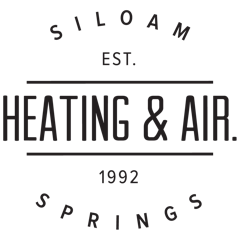
We spend a good majority of our time indoors. In fact, the Environmental Protection Agency (EPA) has approximated being inside comprises 90% of our schedule. Having said that, the EPA also has found your indoor air can be three to five times dirtier than outdoors.
That’s since our houses are tightly sealed to enhance energy efficiency. While this is great for your utility costs, it’s not so great if you’re a part of the 40% of the population with respiratory allergies.
When outdoor ventilation is restricted, pollutants such as dust and volatile organic compounds (VOCs) might get trapped. As a consequence, these pollutants can worsen your allergies.
You can boost your indoor air quality with clean air and regular dusting and vacuuming. But if you’re still struggling with symptoms while you’re at your residence, an air purifier could be able to provide relief.
While it can’t get rid of pollutants that have gotten trapped in your furnishings or carpet, it could help freshen the air traveling around your house.
And air purification has also been scientifically proven to help reduce some allergic symptoms, according to the American College of Allergy, Asthma and Immunology. It could also be helpful if you or someone in your household has lung trouble, like emphysema or COPD.
There are two kinds, a portable air purifier or a whole-home air purifier. We’ll discuss the advantages so you can determine what’s correct for your home.
Whole-House Air Purifier vs. Portable Air Purifiers
A portable air purifier is for a lone room. A whole-house air purifier works alongside your heating and cooling system to clean your complete home. Some kinds can clean by themselves when your HVAC equipment isn’t running.
What’s the Best Air Purifier for Allergies?
Look for a model with a High Efficiency Particulate Air (HEPA) filter. HEPA filters are used in hospitals and offer the greatest filtration you can buy, as they catch 99.97% of particles in the air.
HEPA filters are even more useful when used with an ultraviolet (UV) germicidal light. This mighty blend can eliminate dust, dander, pollen and mold, all of which are common allergens. For the ultimate in air purification, evaluate a system that also has a carbon-based filter to reduce household smells.
Avoid buying an air purifier that generates ozone, which is the top ingredient in smog. The EPA advises ozone might aggravate respiratory troubles, even when released at low amounts.
The Allergy and Asthma Foundation of America has created a list of questions to consider when getting an air purifier.
- What can this purifier extract from the air? What doesn’t it take out?
- What’s its clean air delivery rate? (A bigger figure means air will be cleaned more quickly.)
- How frequently does the filter or UV bulb need to be changed]? Can I complete that on my own?
- How much do spare filters or bulbs cost?
How to Reduce Seasonal Allergy Symptoms
Want to get the {top|most excellent|best] results from your new air purification unit? The Mayo Clinic advises completing other procedures to limit your exposure to problems that can cause seasonal allergies.
- Stay indoors and keep windows and doors shut when pollen counts are elevated.
- Have other household members mow the lawn or pull weeds, since these jobs can trigger symptoms. If you have to do these chores yourself, you may want to consider using a pollen mask. You should also rinse off without delay and put on clean clothes once you’re finished.
- Avoid drying laundry outside your home.
- Use air conditioning while at home or while driving. Consider installing a high efficiency air filter in your house’s heating and cooling system.
- Equalize your residence’s humidity levels with a whole-house dehumidifier.
- Hardwood, tile or linoleum are the best flooring materials for lowering indoor allergens. If your house has carpet, use a HEPA filter on your vacuum cleaner.
Let Our Professionals Manage Your Indoor Air Quality Necessities
Prepared to take the next step with getting a whole-house air purifier? Give our experts a call at 479-308-8176 or contact us online to get an appointment. We’ll help you choose the best equipment for your family and budget.


